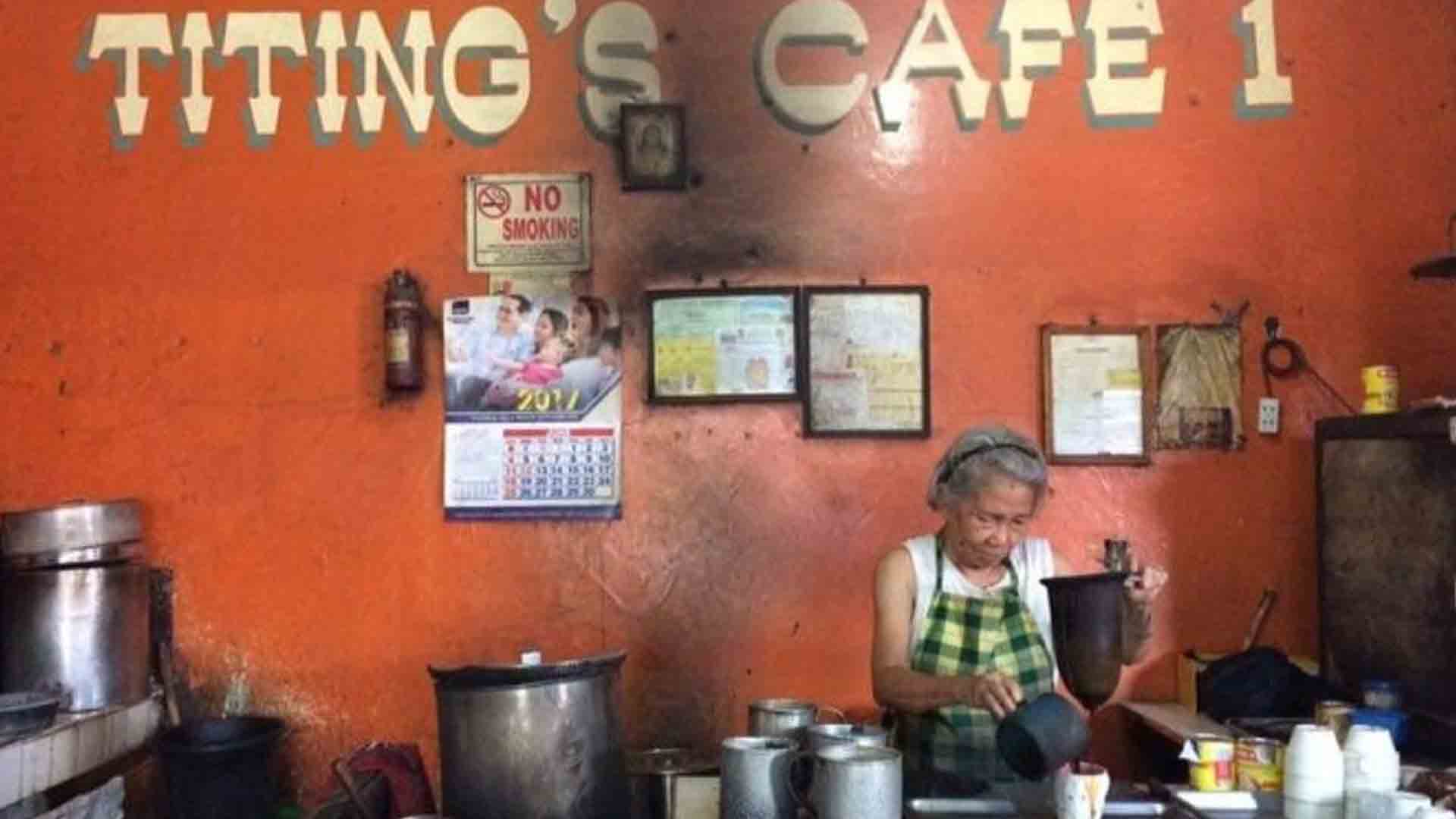The City of San Carlos in Negros Occidental has put the spotlight on the oldest coffee shop in the province’s northernmost locality as part of the activities of the City Tourism Office, marking the Filipino Food Month on Wednesday.
Established by the late Cristito “Titing” Pasinabo Sr. as a family enterprise in 1949, Titing’s Café has become a cultural icon for coffee lovers and a favorite spot for tourists and vloggers as well.
Titing was exposed to coffee making in his early teenage years while working as a dishwasher at his aunt’s “kapehan” inside the old public market.
He opened his own coffee shop also in the market, but a fire incident prompted the family to transfer to a place along Medina Street.
Through the years, Titing’s Café has moved from one location to another until in 2002, when they finally found a home at their current location in Laguda Building.
They serve the best-selling “ti-awti”, a local version of latte, pure black coffee, and “tsokwate”, a freshly brewed chocolate drink.
“We use the technique my grandfather passed on to us to make coffee with distinct taste, making it one of the best,” said Efril Pasinabo, one of Titing’s grandsons.
For their signature coffee, they use traditionally roasted and ground coffee while “keeping the esoteric” way of preparing the beverage.
The roasted Kanlaon coffee of robusta variety is supplied by farmers from Barangay Quezon in San Carlos City, and the cities of Canlaon and Dumaguete in Negros Occidental.
Server Manang Lilia Dual, who has been preparing Titing’s hot coffee since the 1950s, has been a living witness to the growth of the business and customers sharing stories in the café.
According to the City Tourism Office, the legacy of Titing’s Café, being the longest operating coffee shop in the city, continues as his descendants keep the family business alive by making coffee Titing’s style.
This year, the Department of Agriculture, Department of Tourism, National Commission for Culture and the Arts, and the Philippine Culinary Heritage Movement lead the observance of the Filipino Food Month with the theme “Pagkaing Pilipino, Susi sa Pag-unlad at Pagbabago”.
Through Presidential Proclamation 469 signed in 2018, the national celebration aims to appreciate, preserve, promote, and ensure the transmission of the vast Filipino culinary traditions and treasures to future generations and to support the various industries, farmers, and agri-communities. (PNA)







